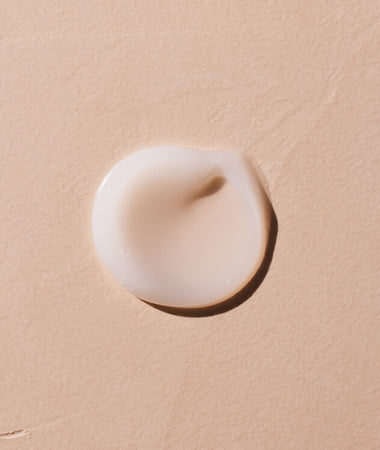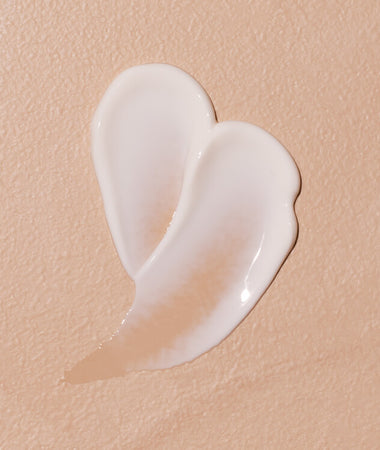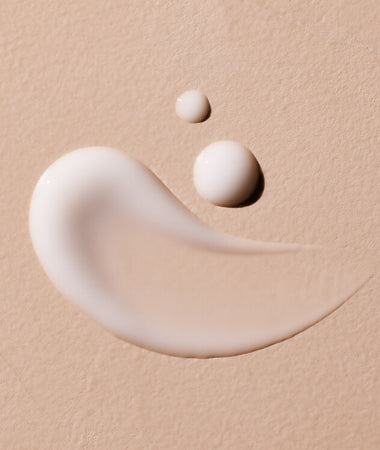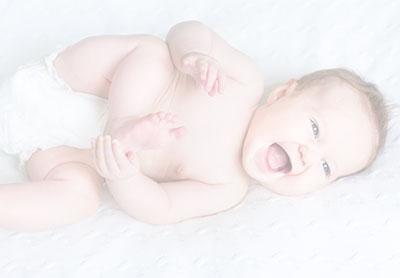
Stimulating Your Baby's Senses In The Womb
By the time your baby is born, each of his senses has already been awakened – although they are not yet working optimally. Your baby's senses are gradually awakened - one after the other - during pregnancy, enabling the fetus to establish contact with the outside world. Learn about how your baby's senses develop before birth!
TOUCH
The sense of touch is the very first to develop: first around the mouth during the 7th week of pregnancy, then in the palms of the hands, the soles of the feet and around the whole face towards the end of the 3rd month… and then the whole body in the 20th week. Towards the 14th week, the baby's hands are also able to clutch things – albeit very clumsily. Your baby starts experimenting with his new perceptions by brushing his face and his body, playing with his umbilical chord, sucking his thumb or through the gentle palpitations of the uterine wall.
4 months into your pregnancy, your baby will also feel it when you stroke the skin of your tummy: rub your hand against your stomach, gently push and stroke it… and soon your baby will start responding with little kicks, or by curling up into your palm!
Consider haptonomy as a means of stimulating your baby's senses and creating a close bond with him. This "emotion science" is usually carried out with both dad and a healthcare professional (a specialist midwife, physical therapist, gynaecologist or paediatrician); it is a means of helping you establish actual communication with your baby while still in the womb, and involves placing your hands on your tummy using special methods.
TASTE
Three months into your pregnancy, your baby's mouth already has taste buds which he can use to experiment with a whole range of different flavours. These come through the amniotic fluid: he sucks and swallows almost continuously, and so is able to taste the various foodstuffs that you yourself eat. After 4 months, he is able to distinguish between sweet, salty, sour and bitter flavours. Babies suck almost incessantly in the womb – which explains why so many newborn babies have an intense need to suck as soon as they are born.
It's very important to vary your own diet during pregnancy so as to develop your baby's sense of taste (while at the same time eating what you fancy and meeting your own requirements): this way, he'll be able to taste a range of different flavours – which he will remember after birth. So don't deprive yourself of spicy or highly-flavoured dishes! Your baby will also enjoy what you eat, and these experiences will help determine his future preferences: once he is born, he will already be familiar with a wide range of tastes, and he will appreciate them more easily when the time comes to vary his diet.
SMELL
Smell is closely linked to taste. Your baby will have his first experience of smell in the 7th month of pregnancy – also transmitted by the amniotic fluid: they are able to "smell" what you eat, as well as your own scent – and this will provide them with tremendous reassurance after birth. The day you give birth, it is your scent that enables your child to recognize you, and he will instinctively seek out your breast: in fact, as soon as your child is born, your breasts will secrete the same scent as your amniotic fluid. You should therefore avoid washing your breasts or putting any creams on them just before breastfeeding – doing this would deprive your baby of this wonderful olfactory marker.
HEARING
Hearing is the most developed of all five senses in the womb. Starting in the 7th month of pregnancy, your baby is not just able to detect sounds both inside and outside the womb – he can also react to what he hears.
Everything sounds muffled to him. But he is still able to develop a preference for low-frequency noises, such as the beat of your heart, the voice of his father, the sound of waves breaking on a beach… or even the sound of distant church bells. When you place your hand on your tummy, you'll be able to feel full, calm movements – evidence of your baby's well-being. High-frequency or sudden noises, however – like an alarm, a door slamming, a frying pan falling on the floor or a motorcycle accelerating can stress your baby: his movements will then be fast, jerky and uncoordinated.
Inside your tummy, your baby is also sensitive to music – when you listen to it, his heartbeat will change and he'll start moving. Go for soft music, and listen to the same songs on a regular basis. Gradually, he will become familiar with them and they will have a soothing effect after birth.
SIGHT
Barely six weeks after conception, your baby already has eyes! But these two tiny black dots are still a long way from being functional. Only after 25 weeks does the foetus start opening and closing its eyes… and then in the 7th month, they become sensitive to light: whenever your tummy is exposed to high light levels, your baby's heart rate increases.
However, of all the senses, sight is the most imperfect at birth: for the first few weeks, your baby is able to distinguish clearly between light and dark, but objects more than around 20 cm away are blurred; babies have no depth awareness and cannot distinguish colours. They don't like bright lights and their field of vision is very narrow. So that your baby can see you properly, place yourself right in front of him and very close to his face! His vision will improve very quickly over the next few months. The rate of improvement will then slow down until he is 4 years old – by which time it will have reached its optimum acuity.
- reg.
- $16.00
- Sale price
-
$16.00
- reg.
-
reg.
- Unit price
- /per
- reg.
- $23.00
- Sale price
-
$23.00
- reg.
-
reg.
- Unit price
- /per
Suggested Articles

6 Tips For Finding The Best Maternity Clothes
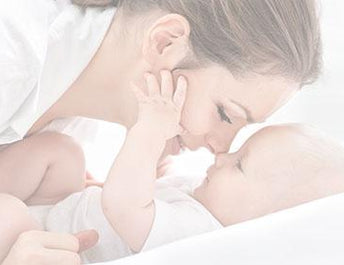
7 Breastfeeding Myths & Realities

The Best Postpartum Care Plan For New Mothers
Get tips, news
and exclusive offers


